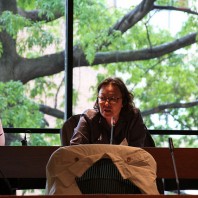An Indian civil society group responds to an invitation from Country Director Roberto Zagha to attend a consultation workshop on the proposed Country Partnership Strategy with an open letter decrying past World Bank actions.
A new BIC publication outlines the World Bank Group’s approach to development in Mongolia since 1991, focusing on the extractives industry. Mongolia is a large, sparsely populated country sandwiched between Russia and China whose economy has been growing rapidly over the past 10 years due to the discovery of vast mineral deposits such as coal …
The World Bank makes public its interim strategy for Tunisia after the government agrees to early disclosure. On June 27, 2012 the World Bank made public its interim strategy for Tunisia for the years 2013-2014 which outlines its engagement in the country during this transitional period. The Bank’s Board of Executive Directors is set to …
Under pressure to keep up with a changing world, the Bank is modernizing. Encompassing the primary operational policy reforms, as well as changes to enhance the enabling environment for policy implementation, the modernization agenda will set the stage for the upcoming review of World Bank safeguard policies. With a wide array of ongoing internal and …
Civil society groups are calling for a review of World Bank and CAS in India. Below is a statement from Indian civil society groups on the World Bank consultation on its Country Assistance Strategy (CAS) on 31 May 2012: The World Bank’s Country Assistance Strategy (CAS) 2013-2016 Consultation is Farce Indian Parliament Must Review Operations …
Mr. Ona and other CSOs were detained for their plans to hold a demonstration on the sidelines of the New York Forum investment conference in Gabon. As of the evening of June 8, Ona and the others were released.
BIC highlights the work of Sukhgerel Dugersuren, Executive Director of the Mongolian NGO Oyu Tolgoi Watch.
As the fate of a World Bank loan to support reforms in Egypt remains unclear, civil society is taking proactive measures to ensure that future loans to the country are transparent.
Despite warnings from its own appeals body and communities, the Bank declined to take concrete actions to address major concerns over water availability, air quality, and others.
BIC outlines the World Bank’s current activities in Yemen and proposes that civil society engagement is necessary now more than ever.

